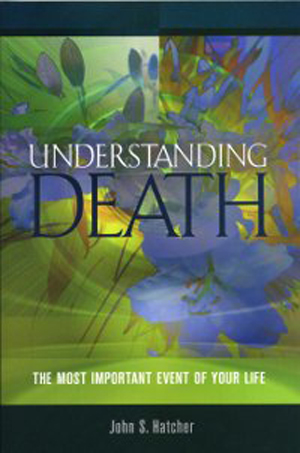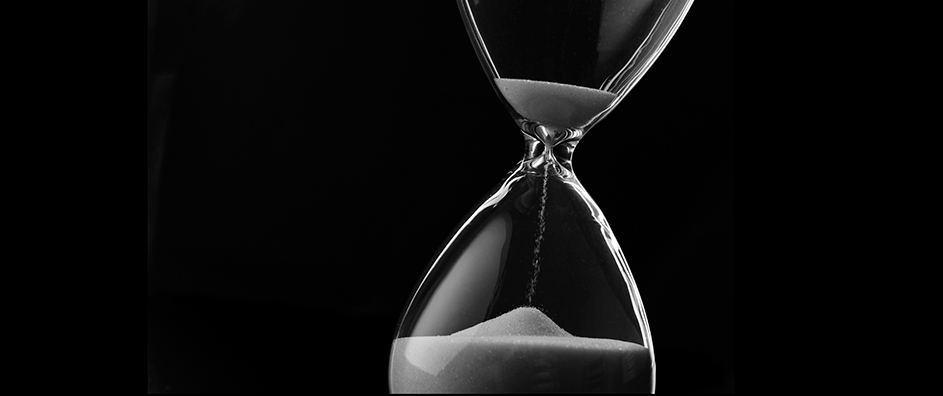The views expressed in our content reflect individual perspectives and do not represent the authoritative views of the Baha'i Faith.
I’m healthy enough—good blood pressure, sound organs, no history of heart or lung disease, but with the help of computer research, I’ve traced those males from whom I am directly descended all the way back to the fourteenth century, and thus far, only one has lived into his eighties. My grandfather died at seventy-four. My father died at seventy-six; my brother at seventy. I had a first cousin who visited me with his wife at age seventy-nine. He looked fit, strong, funny, and indomitable. I thought surely he would make it, but he died unexpectedly from some anomalous disease six months later.
So at sixty-eight, I feel as if I am frantically trying to live each day to the fullest because I simply don’t know how many more days are allotted to me. For sure it’s a finite number, and anything short of infinity is scary. But the laws of probability are starting to weigh on me. Five years, ten at most—that’s probably the best I can hope for. Now I no longer have to use my imagination about what the persona feels in Shakespeare’s famous sonnet “That Time of Year,” especially that last quatrain:
In me thou see’st the glowing of such fire,
That on the ashes of his youth doth lie,
As the deathbed whereon it must expire,
Consumed with that which it was nourished by.

This essay contains excerpts from John Hatcher’s book ’Understanding Death’
That very life force that has impelled me down the corridors of my brief time, that have snatched me from my magical and matchless childhood in Greensboro, North Carolina, is now all too rapidly eating away my remaining days, months, and years. And my deathbed is indeed composed of all those recollected times I dream about each night. And if a mind as great as Shakespeare’s was made nervous by this fact, then why should I be ashamed to confess it?
My brother often said he couldn’t wait to get to the other side. He was not very much of this world. He lived his life barely touching ground. It was all intellect and only occasionally did he own stuff or let stuff own him. Most of his life he and family lived in apartments. He never worked a garden or cared about the mahogany furniture and other relics passed down from the deceased generations. He never cared much for family stories or histories—he liked to think of himself as a self-made man, at least in regard to the important accomplishments.
For him, life’s journey was headed inexorably to the celestial abode, and sometimes, perhaps weary with the pain of this life, he actually embraced the thought of its surcease. I remember him asserting this as early as his mid-twenties, and I remember trying to accept his declaration as a sign of fearlessness or certitude or detachment, but in no way could I relate to it on a personal level. For me such statements seemed a denial of or disdain for the wonders of this life, which I believe is no less a divine creation.
Not that I am unaware of the dark side of this “dust heap,” as Abdu’l-Baha calls this life on occasion. I appreciate that according to the Baha’i teachings, among the most prized attributes one can acquire in this life is detachment from the things of this world:
Abandon not the everlasting beauty for a beauty that must die, and set not your affections on this mortal world of dust. – Baha’u’llah, The Hidden Words, p. 26.
Abandon not for that which perisheth an everlasting dominion, and cast not away celestial sovereignty for a worldly desire. This is the river of everlasting life that hath flowed from the well-spring of the pen of the merciful; well is it with them that drink! – Ibid., p. 35.
Set not your affections on mortal sovereignty and rejoice not therein. Ye are even as the unwary bird that with full confidence warbleth upon the bough; till of a sudden the fowler Death throws it upon the dust, and the melody, the form and the color are gone, leaving not a trace. Wherefore take heed, O bondslaves of desire! – Ibid., p. 48.
Yet among all these exhortations to become detached from the things of this world—whether precious objects, sensual passions, or pride and power—are equally important laws and ordinances commanding that we disdain asceticism and monasticism, that we each of us acquire a profession or occupation, and that we demonstrate and refine our spirituality by means of establishing a regimen of righteous deeds of stainless purity:
Holy words and pure and goodly deeds ascend unto the heaven of celestial glory. Strive that your deeds may be cleansed from the dust of self and hypocrisy and find favor at the court of glory; for ere long the assayers of mankind shall, in the holy presence of the Adored One, accept naught but absolute virtue and deeds of stainless purity. – Ibid., p. 46.
Guidance hath ever been given by words, and now it is given by deeds. Every one must show forth deeds that are pure and holy, for words are the property of all alike, whereas such deeds as these belong only to Our loved ones. Strive then with heart and soul to distinguish yourselves by your deeds. In this wise We counsel you in this holy and resplendent tablet. – Ibid., pp. 48-49.
The Baha’i writings often cite the principle of moderation as a guideline for every sort of endeavor:
It is incumbent upon them who are in authority to exercise moderation in all things. Whatsoever passeth beyond the limits of moderation will cease to exert a beneficial influence. – Baha’u’llah, Gleanings from the Writings of Baha’u’llah, p. 216.
And yet it would seem that these two sets of guidelines—the one exhorting us to detach ourselves from the things of this earthly life and the other exhorting us to become active in the world, to earn a living, and to demonstrate and exercise spirituality by means of action—are not intended to establish two extremes between which is the middle path of moderation.
Buy a copy of John Hatcher’s book Understanding Death
Reprinted with the permission of the author and the U.S. Baha’i Publishing Trust.
















Comments
Sign in or create an account
Continue with Googleor